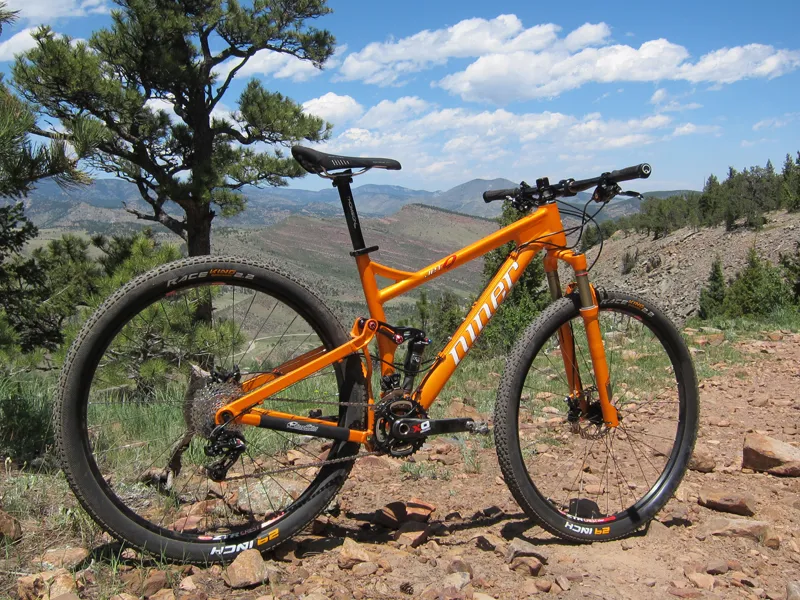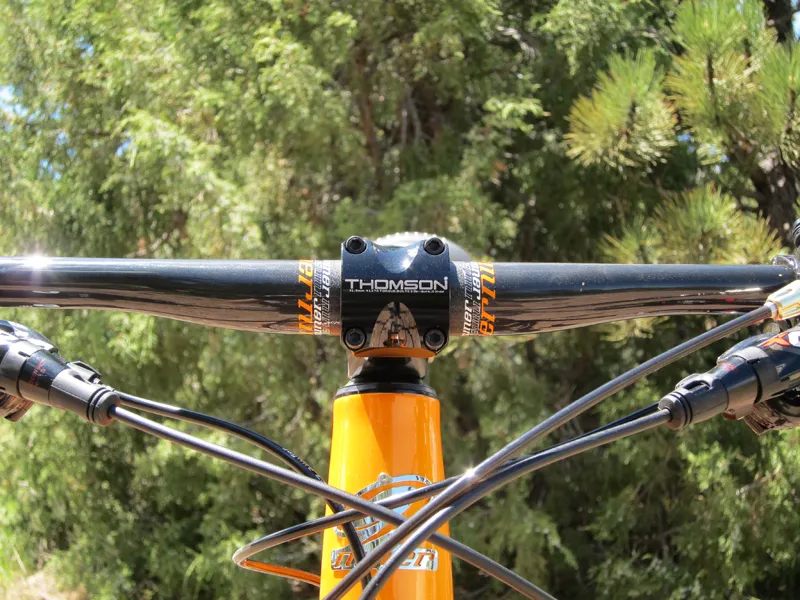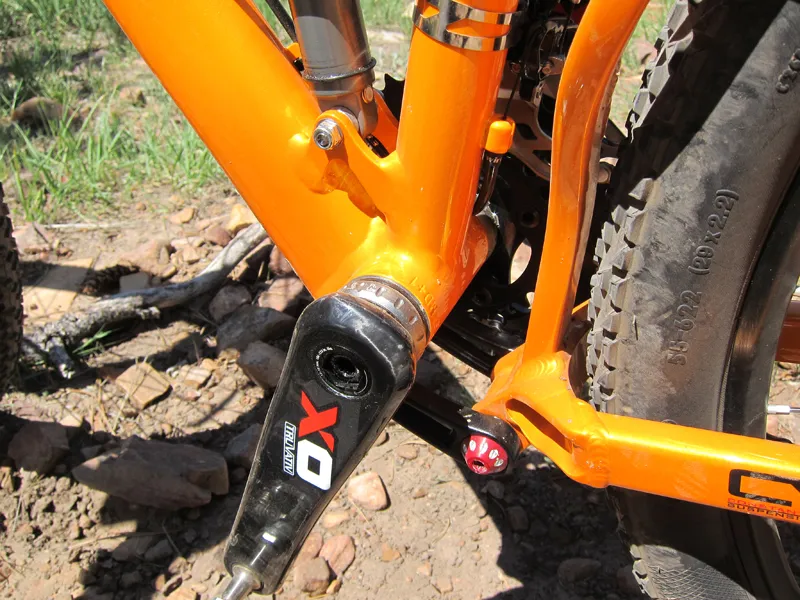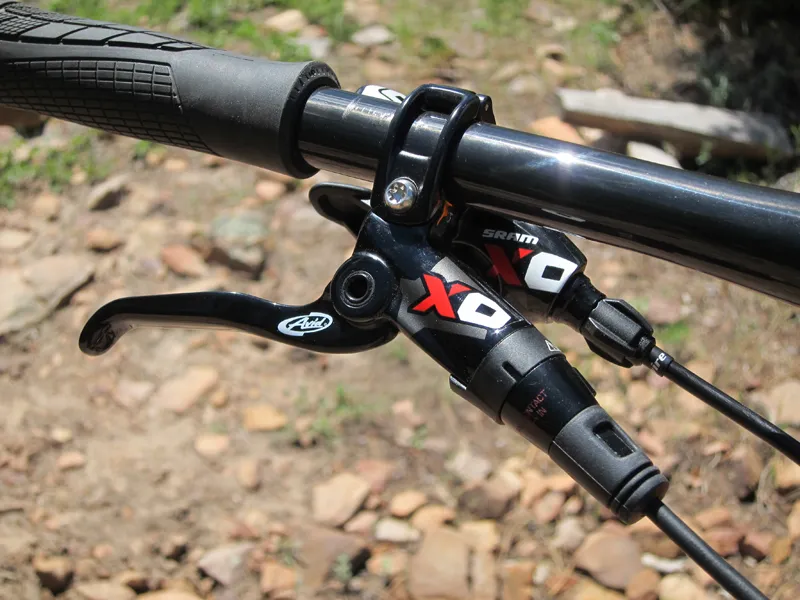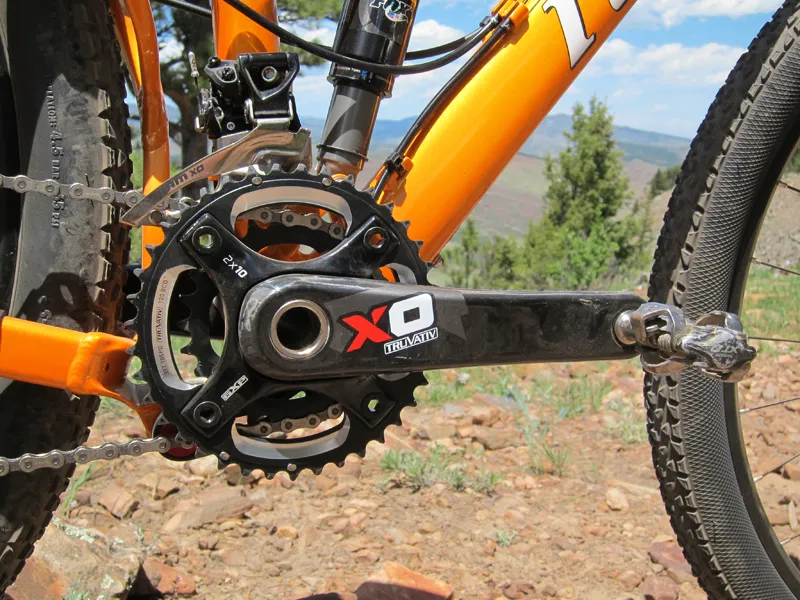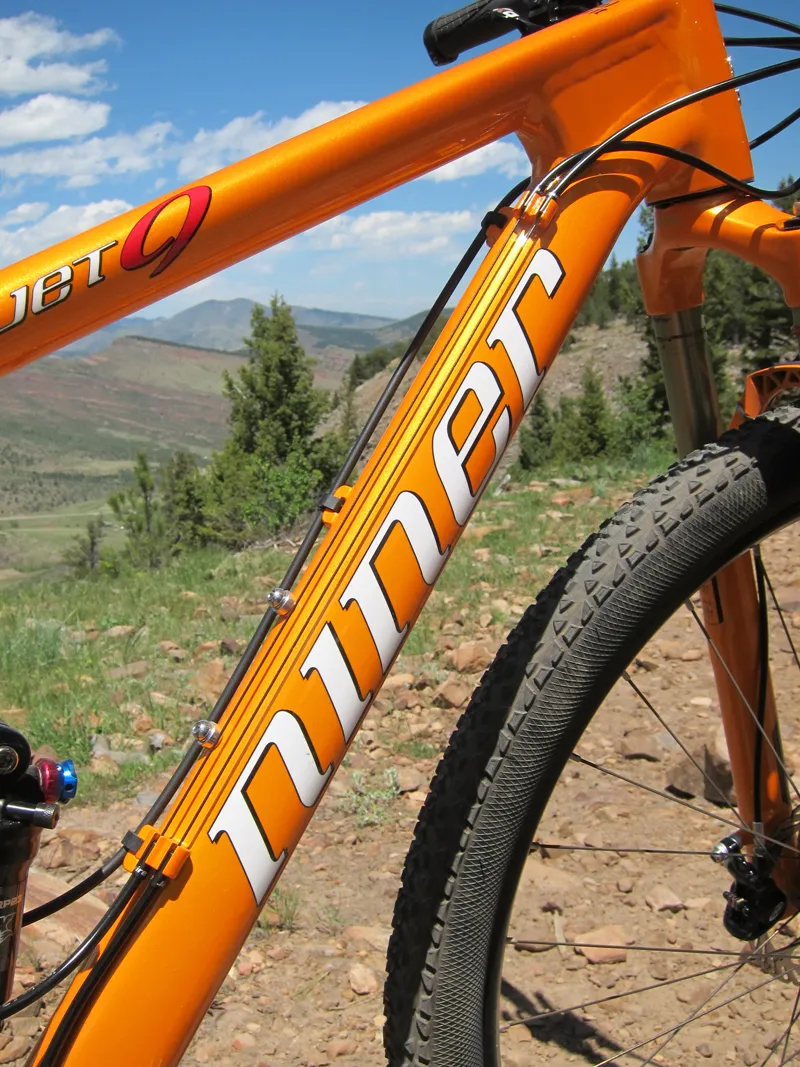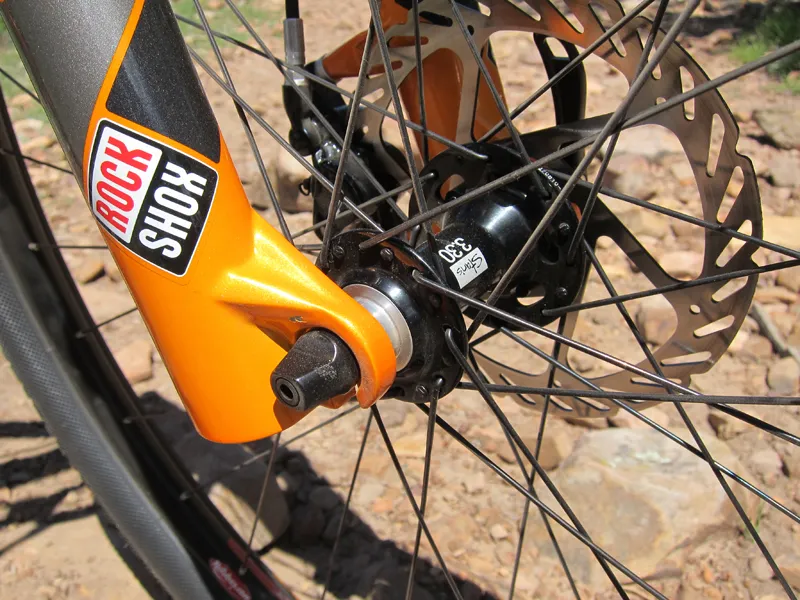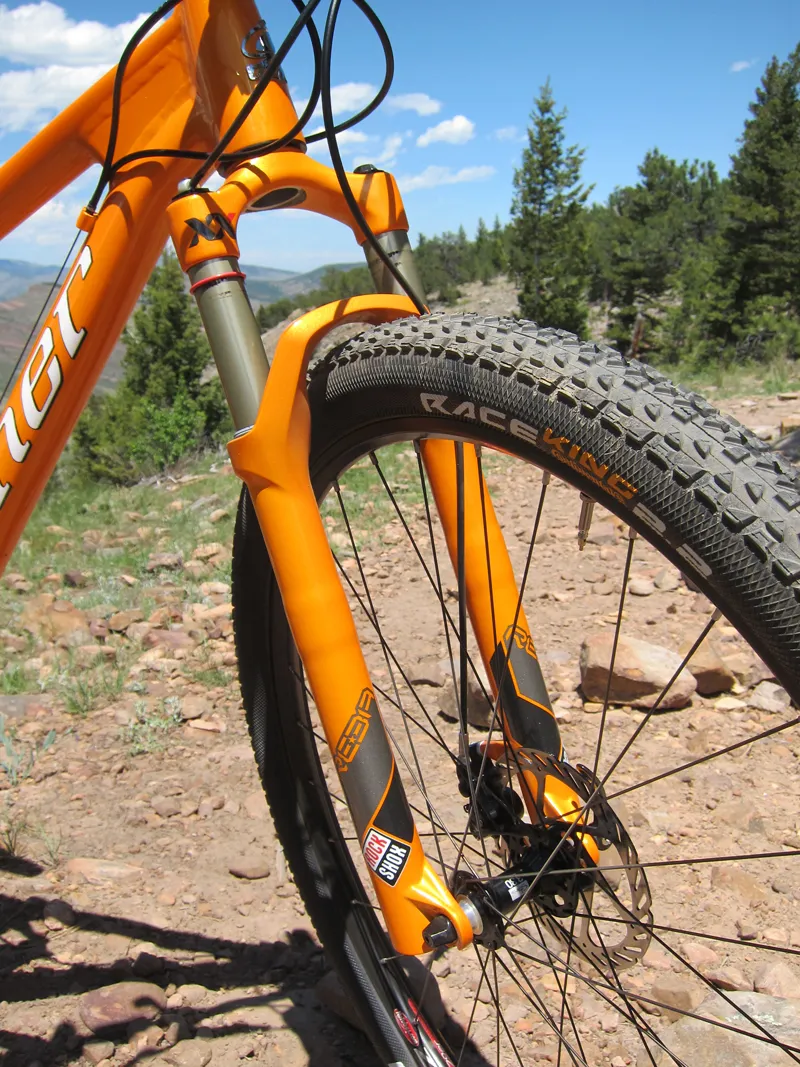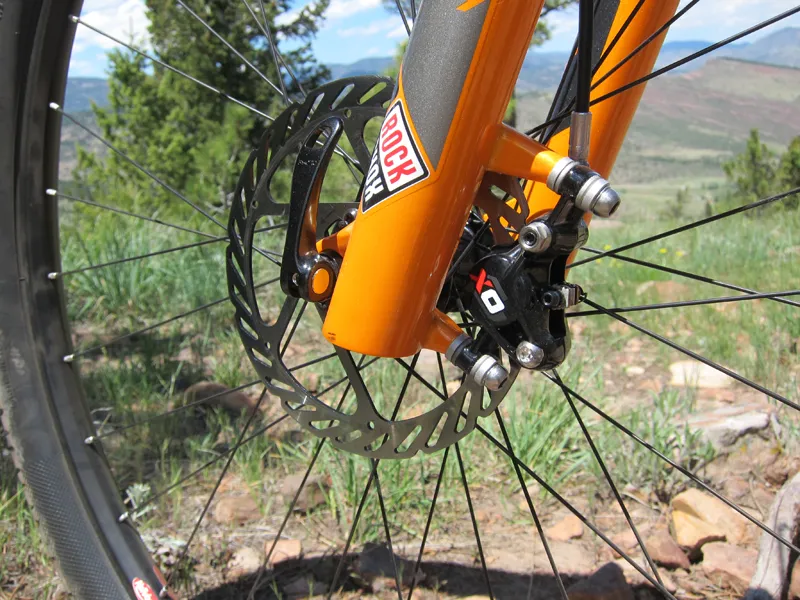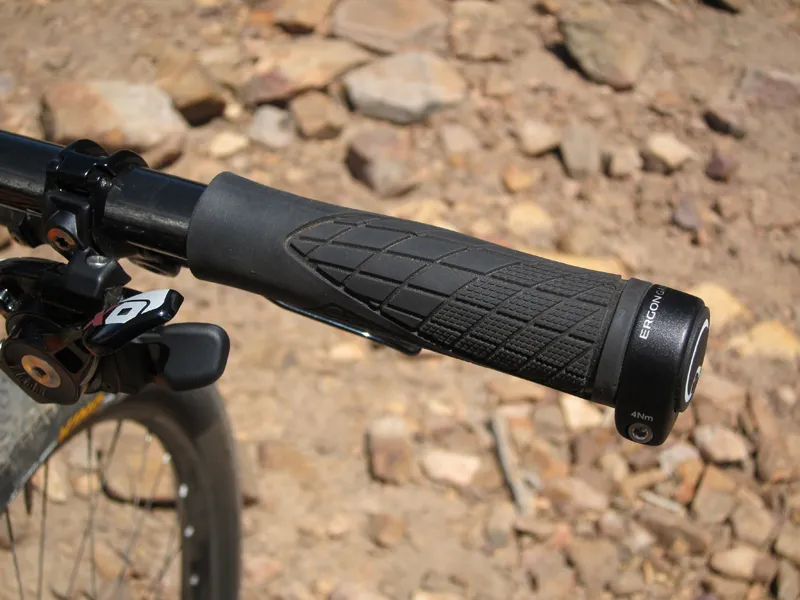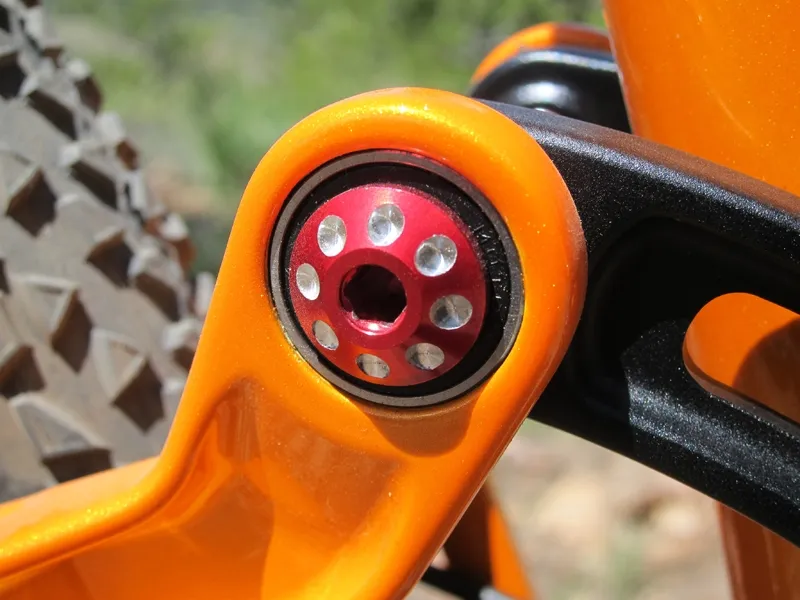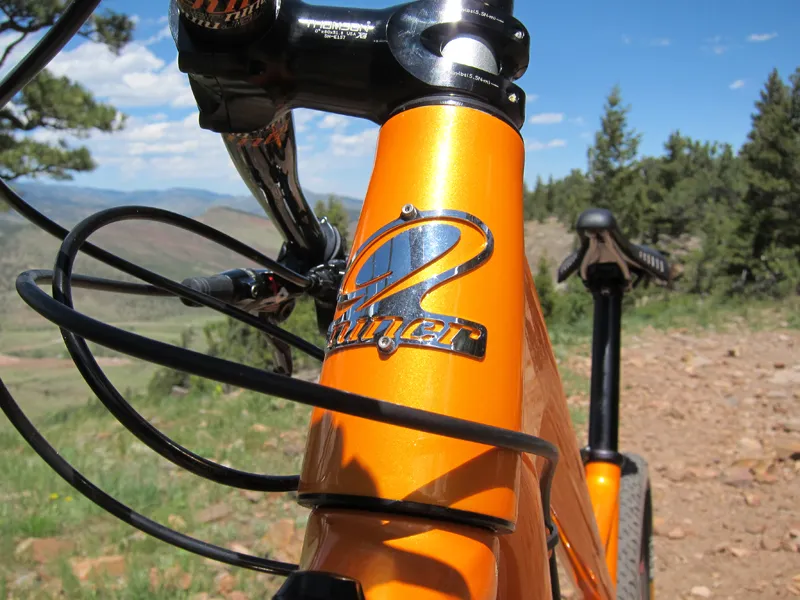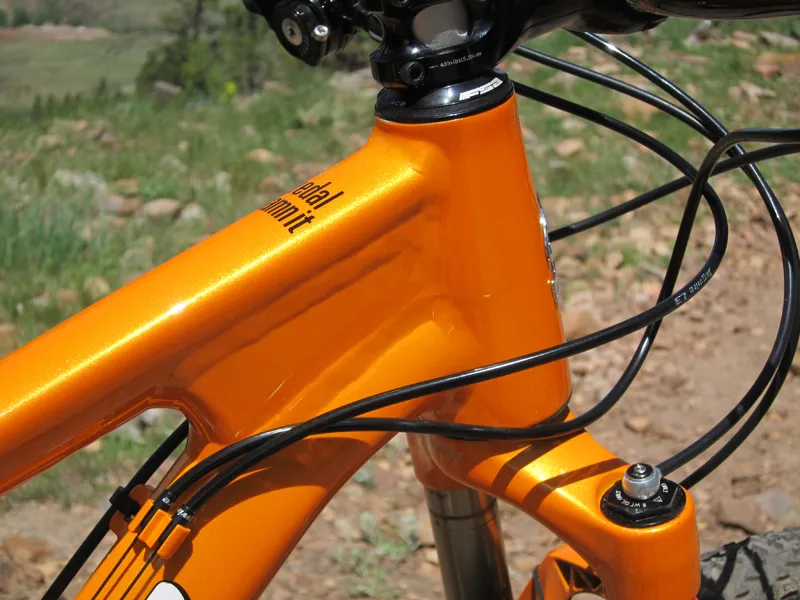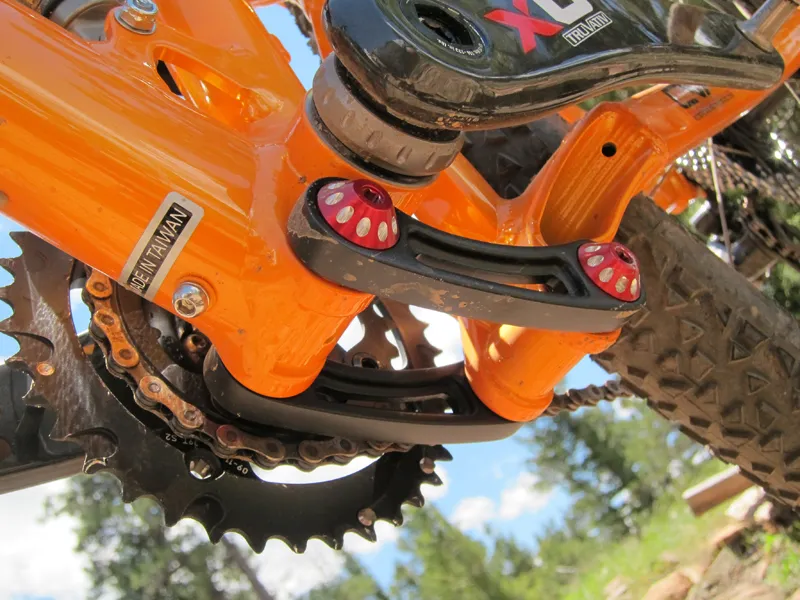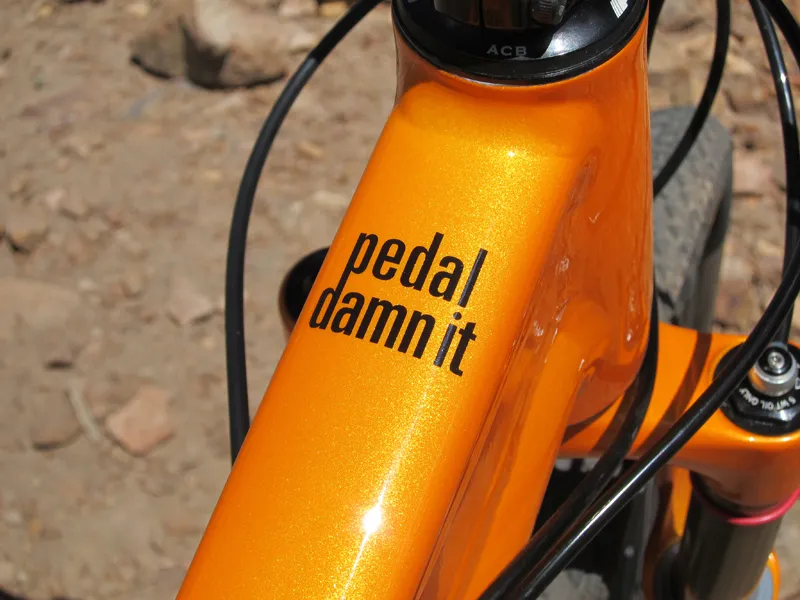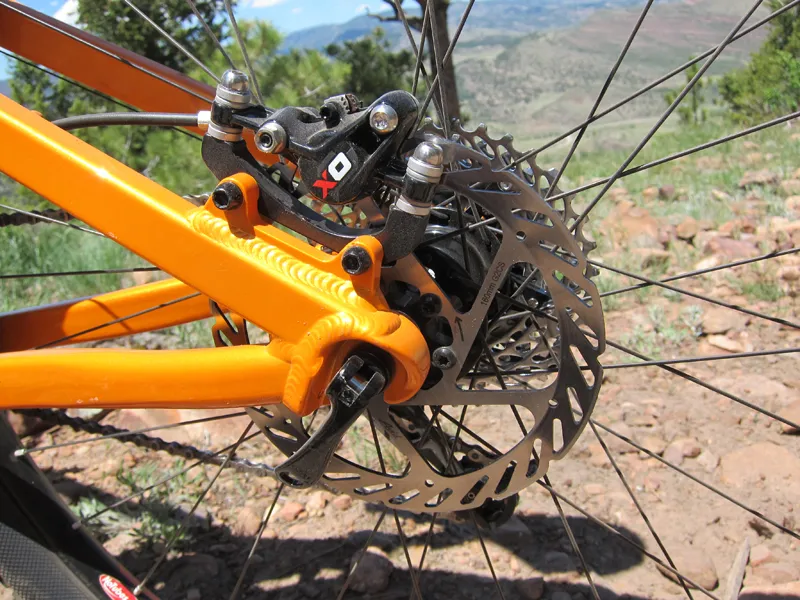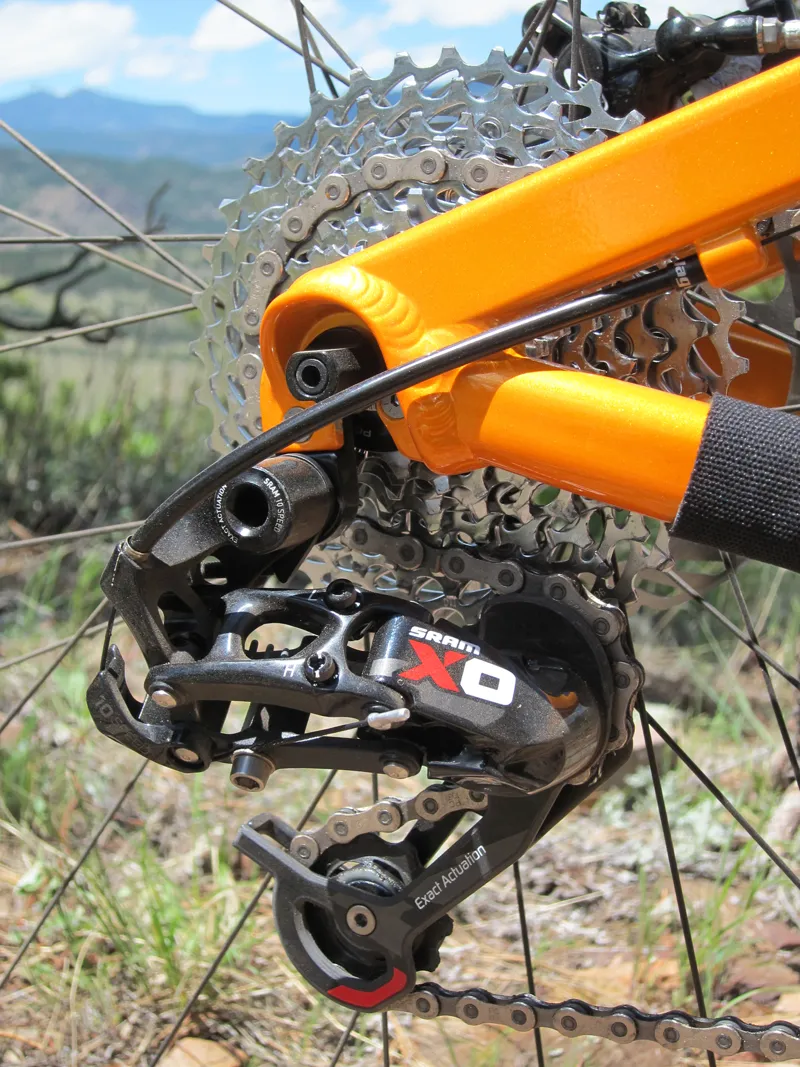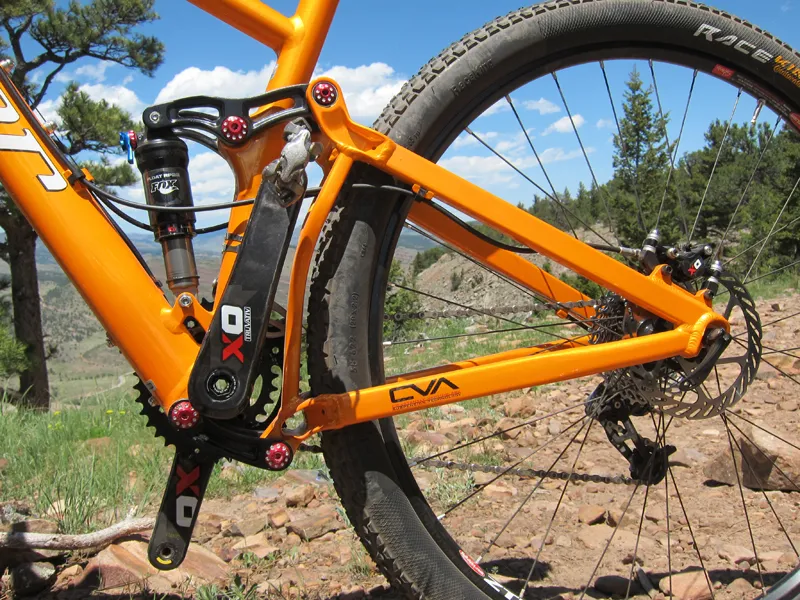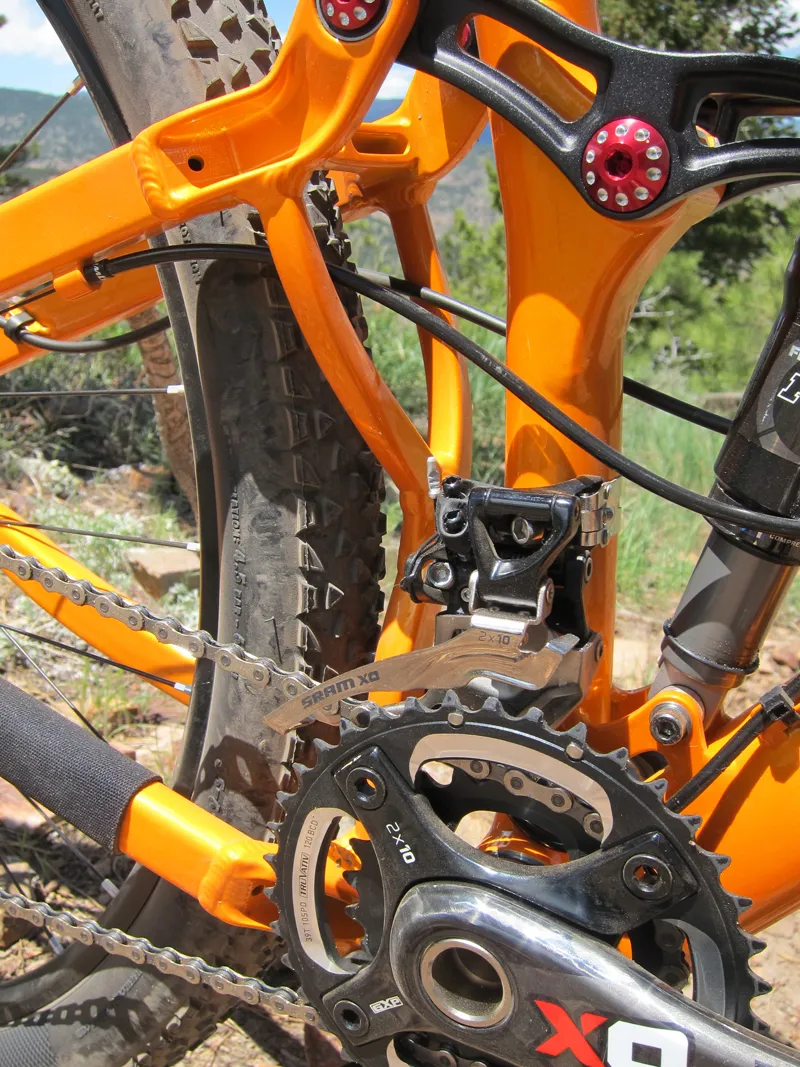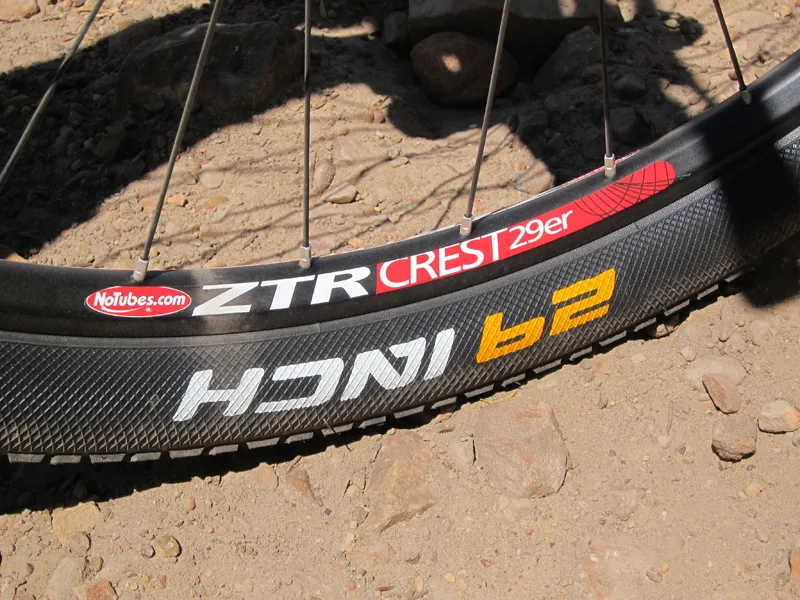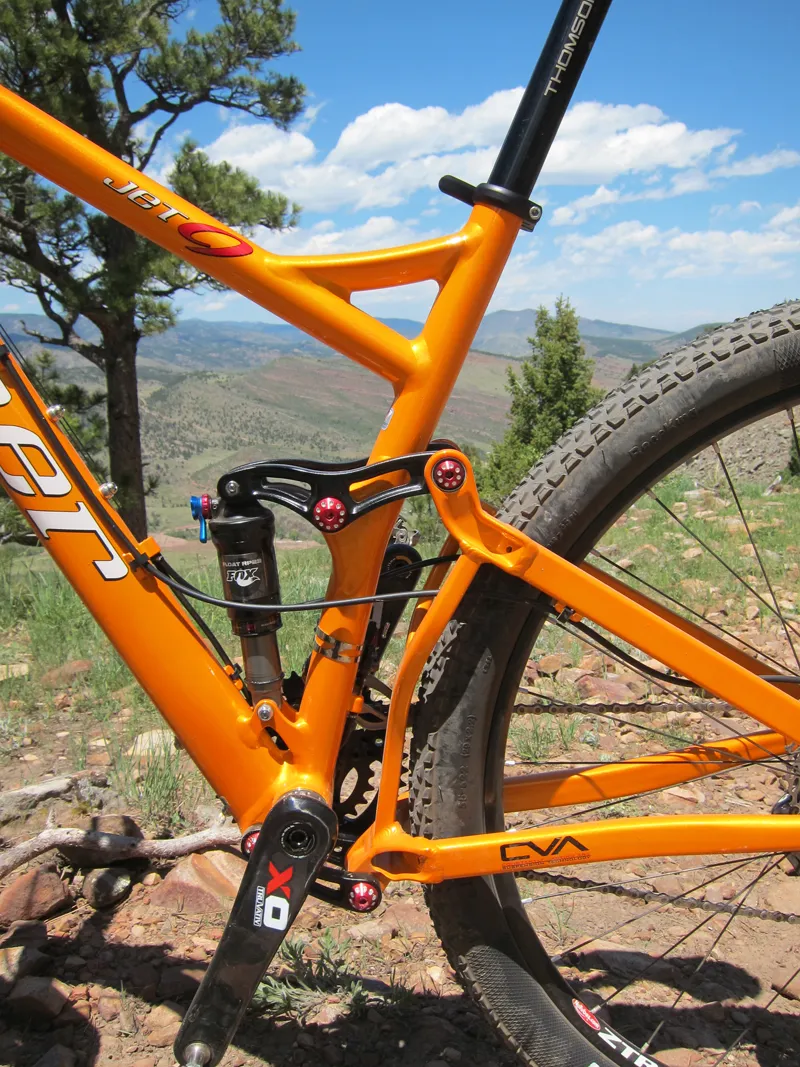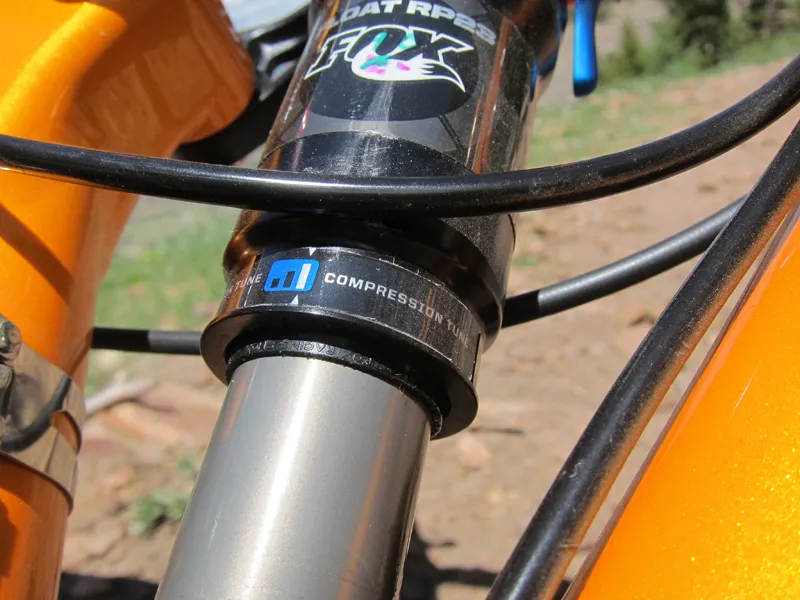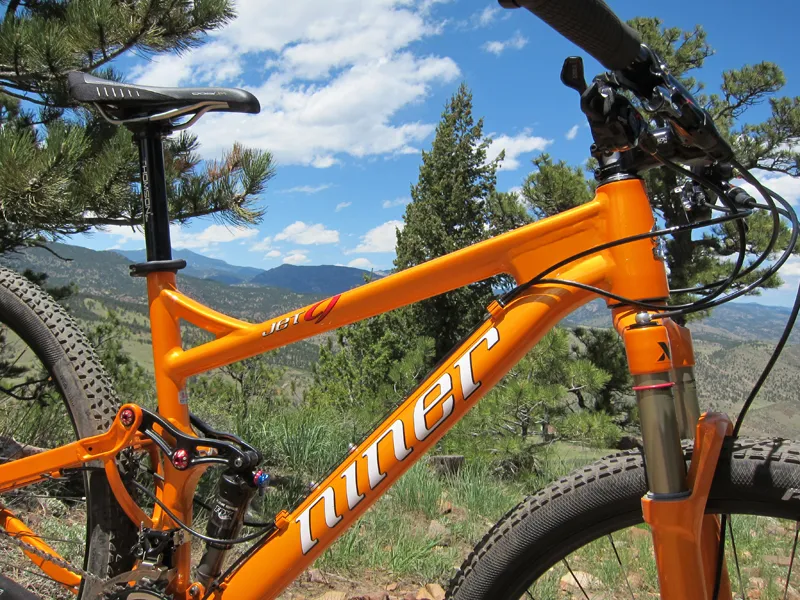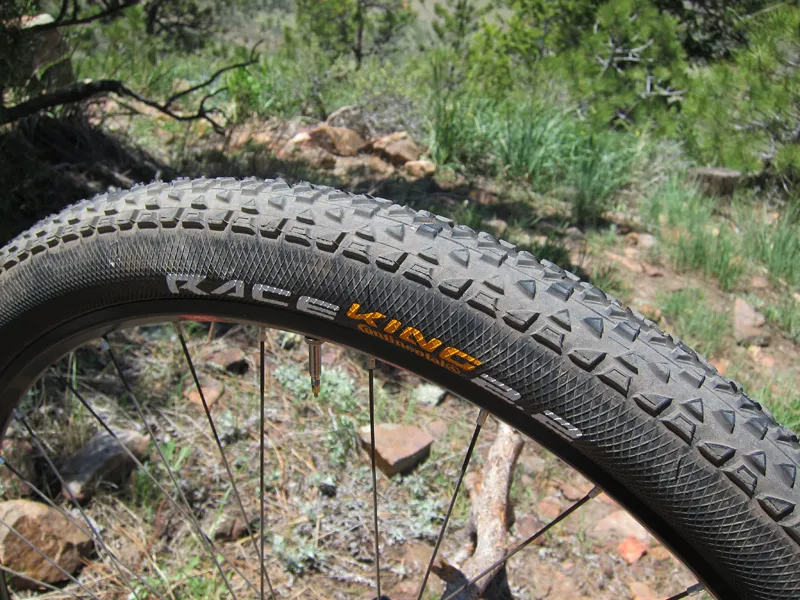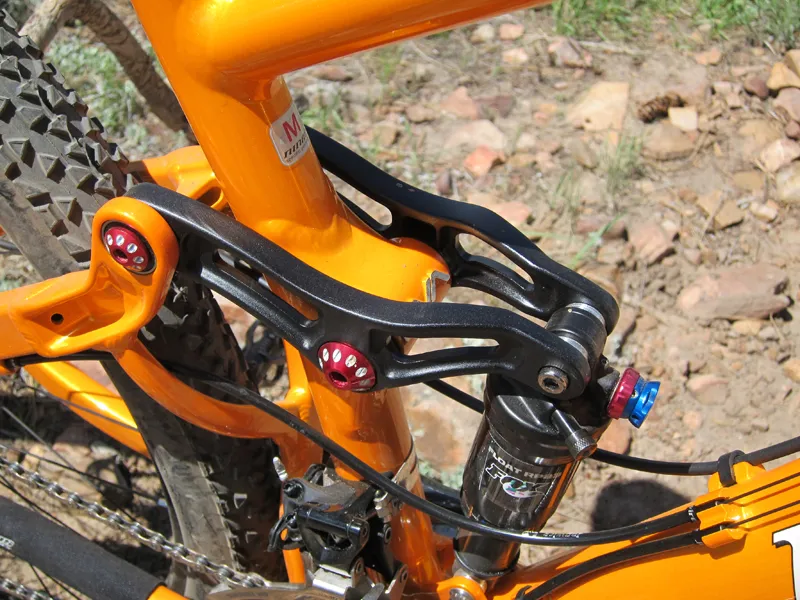Niner's short-travel JET 9 promises a, "fast, light, race-ready full suspension bike" and it's not too far off from that mark.
Fast? Yep, it carries speed very well and pedals very efficiently. Race-ready? Sure, we certainly wouldn’t be at all upset to sling a leg over this thing for a marathon or multi-day event. But light? Apparently that's all relative.
Ride and handling: poorly tuned shock on 2011 models, corrected for 2012
Efficient pedaling is key for any cross-country bike with racing aspirations and Niner has hit that mark with its short-dual-link CVA (Constantly Varying Arc) rear suspension design and minimal 80mm of travel. Much like Giant's Maestro system in terms of feel, CVA hardly budges when you put the power down – in either chainring – and there's a strong sense of efficiency when sprinting out of the saddle or muscling your way up a long (or steep) climb.
More impressive is that we almost never felt the need to use the ProPedal platform setting on our tester's stock Fox Racing Shox RP23 Boost Valve rear shock, instead reserving it solely for long stretches of pavement.
Unfortunately, that stock rear shock was also our biggest source of consternation with its very firm compression valving. According to Niner's Carla Hukee, "We felt the high compression damping would result in the best pedal efficiency and appeal to the hardcore XC racers."
While it's true that pedaling efficiency is very high, the overly aggressive shock tune also hampered the rear end's ability to move at all, including when we wanted it to. We struggled to achieve full travel on anything milder than medium-sized drops even at well above the recommended sag level, the bike chattered uncomfortably across babyheads and roots, traction notably suffered on even slightly technical climbs, and in general we felt like we were riding a porky hardtail instead of what was supposed to be a finely tuned full-suspension race rig.
Ultimately we put a call into Fox Racing Shox for another RP23 that we felt had a more appropriate tune and the difference was astounding. The resultant feel wasn't exactly pillowy soft but now the rear wheel actually followed the ground as it should have, even with a much higher air pressure than we were initially running on the original unit.
Especially when combined with the bigger 29in wheels (wrapped in meaty 2.2in-wide tires, no less), the upgraded JET 9 mercilessly barreled through smaller trail obstacles, clawed its way up tricky climbs and held a line through loose corners with impressive tenacity. It doesn't wallow in the mid-stroke like some lesser designs, either, and even bottoms out with just a light thud when you push it just a bit too hard.
Pedaling efficiency was almost completely unaffected, too, and our tweaked JET 9 suspension managed to do this with admirable levels of peace and quiet with nary a squeak or whimper from the sealed bearing pivots.
Thankfully, we apparently weren't the only ones to speak up about the shock tune as Hukee says 2012 model year JET 9s are similarly upgraded. "We have changed our stance on this, and agree that the light compression damping offers a better option for all around riders," she said.
Frame stiffness is good overall and a big improvement over the previous-generation JET 9, though still a step or two behind better carbon fiber chassis and a touch disappointing given the surprising bare frame weight (more on this later). The rear triangle and upgraded linkages seem stout enough but the front triangle definitely wags around a bit when rocketing through technical terrain, particularly in combination with the quick-release fork tips.
Niner's CVA suspension may be modern but the front-end geometry is more old school (if such a thing can even be said of the relatively nascent 29er category). While much of the rest of the industry seems to be gravitating towards slacker head tube angles (the Scott Scale 29 RC hardtail we tested back in February had a 69.5° front end for example), Niner has stuck to the much steeper geometry that it's incorporated since day one. Many riders will appreciate the comparatively nimble feel that provides in tighter and twistier terrain but more progressive pilots may find things a bit twitchy at higher speed – either way, to each their own.
Frame: forgings, gussets, and hydroforming aplenty – but also a little too much metal
Niner's 2010 JET 9 redesign introduced a wealth of upgrades to the troublesome first-generation model, notably lots of aluminum forgings whose list now includes the upper and lower links, seat stay and chain stay yokes, the bottom bracket shell and main pivot assembly, dropouts, and seat tube pivot. The top tube, down tube, chain stays, and rear triangle brace also are treated to a generous dose of hydroforming to go along with the newly tapered head tube.
Niner claims a 30 percent jump in frame stiffness relative to the original JET 9 and it's a believable figure. Unfortunately that also brings with it more weight than one might typically expect of a chassis with so little travel that it was presumably designed to tackle lots of climbing. Bare frame and shock weight for our medium-sized test rig was a hefty 2.97 kg (6.55lb) including the rear derailleur hanger, seatpost collar and water bottle bolts, and Niner can't boast of shaved grams from a press-fit bottom bracket or drop-in headset bearings, either – not exactly the spirit of a wispy mountain goat.
Sizing strikes us as a little odd, too, with unusually long reaches for a given size. Case in point is our "medium" tester, which features a generous 607mm (23.9in) effective top tube.
On the plus side, initial build quality is very good with no obvious weak points in the structure that we'd watch out for long-term, sturdy anodized aluminum thru-shaft pivot hardware, and a massive box-type gusset reinforcing the front end. Cable routing is neatly done, too, with smooth runs that yield low friction at the shift levers and fairly minimal paint contact.
Not to be overlooked is our test bike's brilliant metallic 'all tang' paint job, complete with matching fork lowers and crown. It's refreshingly bold and bright and positively glows in bright sunlight. If you're going to do in-your-face colors, this is a good way to do it.
Build kit: excellent SRAM X0 group, smart NoTubes wheel spec
Niner doesn't currently list a SRAM X0 option on its web site but Hukee says one similar to our test model is coming at a suggested retail price of around US$4,789. In addition to the complete SRAM X0 group, you also get a NoTubes ZTR Crest 29er wheelset, a Thomson seatpost and stem, a choice between two different Continental tires, a RockShox Reba XX fork, fi'zi:k's popular Gobi XM saddle, Ergon grips, and Niner's own Flat Top carbon bar.
Hampered by that overbuilt frame, total weight for our tester as pictured (without pedals) is still a good – but not great – 11.99kg (26.43lb).
Complaints are few and far between on the build kit itself, though. As we've noted on previous occasions, the SRAM X0 2x10 group offers up excellent shift quality – especially up front – and a very positive, low-friction, tactile feel that riders have come to expect from SRAM's workhorse performance shift levers. Braking performance was consistently strong and controllable with good lever feel, too, though some riders may want to upsize to a 180mm front rotor.
The accompanying RockShox Reba XX fork presented no surprises, either, with excellent overall trail manners, a wide range of tunability, and a handy bar-mounted hydraulic lockout (though we still prefer the BlackBox Motion Control compression damper for ultimate bump control).
NoTubes' light ZTR Crest 29er wheels help mask some of the bike's weight with an impressive 1,575g claimed weight for the set. The wider rim profile also lends a better foundation for the fast-rolling, 2.2in-wide Continental Race King tires. Hubs come from NoTubes' own house brand but the bearings have stayed smooth and the freehub body engaged reliably throughout our nearly four-month test period.
The wheel and fork combination would be further improved, though, with a thru-axle front end – an available option from Niner that we strongly recommend. As it is, the puny front hub end caps don't present much surface area to the fork tips and while the rims are wide, they're still relatively flexible and soft so we'll take any bump in stiffness we can get, even if it comes with a little more weight. Barring pure racers, general trail riders will extract more benefit that way.
The Thomson and fi'zi:k parts were predictably capable – no surprises there – but we were impressed by the Niner Flat Top carbon bar. It's usefully wide at 710mm from end-to-end but the clever shape allows for a 5mm rise or drop depending on the orientation – just by taking advantage of the 31.8mm clamp's extra real estate. It's very stiff as well – maybe too stiff, in fact. Bigger riders will marvel at the lack of flex but it's so unyielding that our hands consistently went numb on longer rides.
Overall: good package but it only makes us pine for the new JET 9 RDO instead
Assuming the new shock is in place, Niner has ticked most of the key boxes on the JET 9 for the intended crowd but the frame weight is impossible to ignore. Much like a star athlete with some bad eating habits, the JET 9 has all the right moves but it's dulled by a few too many helpings of Thanksgiving turkey.
We'd ultimately like to see Niner pull some more grams out of the current platform (without affecting the stiffness, of course, which is always the tricky part) as that would make it a much more competitive machine to go along with the efficient, short-travel rear end. Barring that, buyers with bigger wallets can instead look to Niner's new JET 9 RDO – a carbon version of the bike tested here with 20mm more travel, a longer-stroke shock with the same updated tuning, and presumably an even better ride quality with less weight and more stiffness, too.
